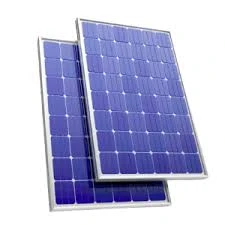solar panel performance in winter
Solar Panel Performance in Winter Maximizing Efficiency During Cold Months
As winter approaches, many people wonder about the efficiency of solar panels during colder months. The perception that solar panels are ineffective in winter is a common misconception. In fact, solar energy systems can perform quite well during winter, provided certain considerations are taken into account.
Understanding Solar Panel Operation in Winter
Solar panels convert sunlight into electricity through the photovoltaic effect. The efficiency of solar panels is affected by several factors, including temperature, sunlight availability, and the angle of the panels. Interestingly, solar panels can perform better in colder temperatures. This is due to the fact that high temperatures can decrease the efficiency of photovoltaic cells. Consequently, the lower temperatures in winter can enhance the performance of solar panels, even when there is less sunlight available.
However, it’s essential to recognize that winter challenges, such as shorter days and potential snowfall, can impact solar energy generation. Understanding these factors can help maximize solar panel efficiency during the winter months.
Sunlight Availability
Winter days are shorter, resulting in fewer hours of sunlight available for solar panels. However, even on cloudy days, solar panels can still generate electricity, although at reduced efficiency. In many regions, the sun is still strong enough to produce significant energy output in winter. For this reason, it is crucial to have a solar panel system that is appropriately sized for the home’s energy needs and optimized for winter performance.
Moreover, the angle of solar panels can make a difference in their performance during winter. In some cases, homeowners may benefit from adjusting the tilt of their solar panels to optimize their exposure to the winter sun. This adjustment can help collect more sunlight, compensating for the shorter daylight hours.
Snow Accumulation
solar panel performance in winter

Snow can pose a challenge for solar panels. When a layer of snow covers the panels, their ability to absorb sunlight is significantly hindered. However, solar panels are designed to be efficient in melting snow. Most panels have a glossy surface that can shed snow easily due to their smooth texture and the heat generated by the panel itself. Additionally, solar panels are often installed at an angle, allowing any accumulated snow to slide off more easily.
In cases of heavy snowfall, it may be necessary for homeowners to manually clear off the snow to ensure optimal performance. However, this should be done with caution to avoid damaging the panels. It is advisable to use a soft-bristle broom rather than metal tools that could scratch or shatter the solar cells.
Maintenance Tips for Winter
To ensure that solar panels operate efficiently in winter, regular maintenance is essential. Homeowners should take the time to inspect their panels for signs of damage, such as cracks or loose connections, which can be exacerbated by winter conditions. Additionally, ensuring that the surrounding area is free from debris, such as branches or leaves, can help maximize exposure to sunlight.
Moreover, investing in a solar monitoring system can provide real-time data about the performance of solar panels. This technology allows homeowners to track energy production and identify any potential issues that may arise during winter.
Conclusion
Solar panels can be highly effective during the winter months, contrary to common beliefs. While the shorter days and potential snowfall can pose challenges, understanding how to optimize performance is key. The cool temperatures can actually enhance energy conversion, and with proper maintenance and possible adjustments, homeowners can harness the sun's energy even in the coldest months.
As the global focus shifts towards renewable energy and sustainability, understanding solar panel performance in winter encourages more people to adopt solar energy solutions. Embracing solar technology during all seasons not only contributes to energy independence but also plays an essential role in combating climate change. Therefore, it’s time to look beyond the winter blues and recognize the bright potential of solar energy throughout the year.
-
String Solar Inverter: The High-Efficiency Solution for Smart Solar EnergyNewsJul.14,2025
-
Revolutionizing Rooftop Energy with the Power of the Micro Solar InverterNewsJul.14,2025
-
Power Independence with Smart Off Grid Solar Inverter SolutionsNewsJul.14,2025
-
On Grid Solar Inverter: Powering the Future with Smart Grid IntegrationNewsJul.14,2025
-
Monocrystalline Solar Panels: High-Efficiency Power for the Future of Clean EnergyNewsJul.14,2025
-
Bifacial Solar Panel: A Smarter Investment for Next-Generation Energy SystemsNewsJul.14,2025







